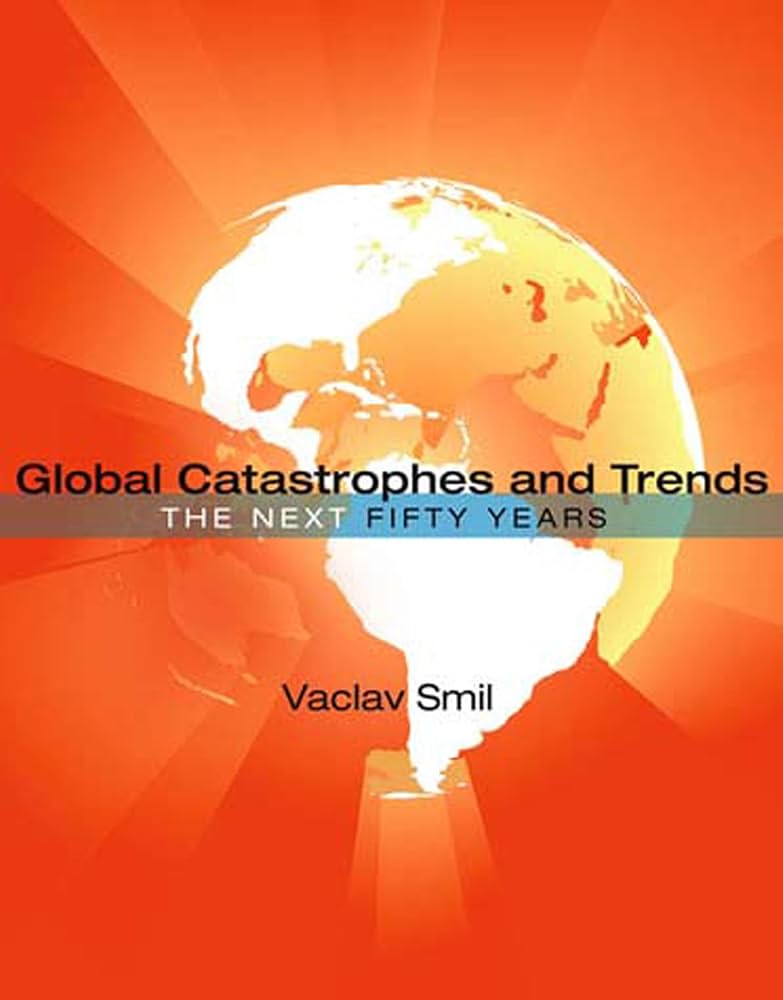Review of Vaclav Smil, Global Catastrophes and Trends and Chris Patten, What Next?
Nature 458 (March 19, 2009): 284-5
Review of Vaclav Smil’s “Global Catastrophes and Trends: The Next Fifty Years” and Chris Patten’s “What Next? Surviving the Twenty-First Century“
…opinion-makers must demonstrate a better grasp of how societies rise and fall if they are to steer nations successfully through many of this century’s major crises.
These are bewildering times. One moment the global economy is booming and stock markets are soaring; the next, trillions of dollars of wealth have vanished, and we are on the cusp of a global depression. Oil prices rocket upwards as leading oilmen talk of worldwide shortages, then they plummet amid a worldwide glut. The United States seems to be in terminal decline, written off by pundits as a has-been hegemon, only to receive a new lease of life, many perceive, with the election of an extraordinary leader.
In a world reeling from surprise, where once-in-a-lifetime events seem to happen every month, two things seem to be constant. The first is the inadequacy of expertise. Although the people we have anointed as experts might not admit it, they are as bewildered by the world’s turbulence as the rest of us. They are also little better at predicting what is going to happen next. The second constant is a pervasive feeling of insecurity. The things we assume to be bedrock truths around which we can organize our lives — scientific theory, moral precepts, political institutions or perhaps the timeless rhythms of nature — seem to be increasingly under assault.
In two books that offer erudite assessments of the dangers facing humankind this century, Vaclav Smil and Chris Patten address these matters in sharply different ways. In Global Catastrophes and Trends, Smil, a Canadian scientist of prodigious productivity and extraordinary disciplinary breadth, basically says “get used to it”. Many of the vital natural and social systems around us are so complex that deep uncertainty characterizes their behaviour, and predicting this behaviour is near impossible. Thankfully, many of the threats to our well-being highlighted by the media are exaggerated — often wildly so. Although there are reasons for concern about where humankind is going, we need to remember that insecurity is part of the human condition. Catastrophe is too, but it is less likely than we imagine. Overall, given the admirable human capacity to adapt and change, the human prospect is far brighter than many assume.
Patten, the last governor of Hong Kong, a cabinet minister in Margaret Thatcher’s UK government and currently the co-chair of the International Crisis Group, a conflict-analysis agency, is less sanguine about the formidable challenges we face — including climate change, resource depletion, global criminality, widening gaps in wealth and possible nuclear terrorism. But in his book What Next?, he shares Smil’s optimism about humankind’s capacity to cope.

Topics
Other
